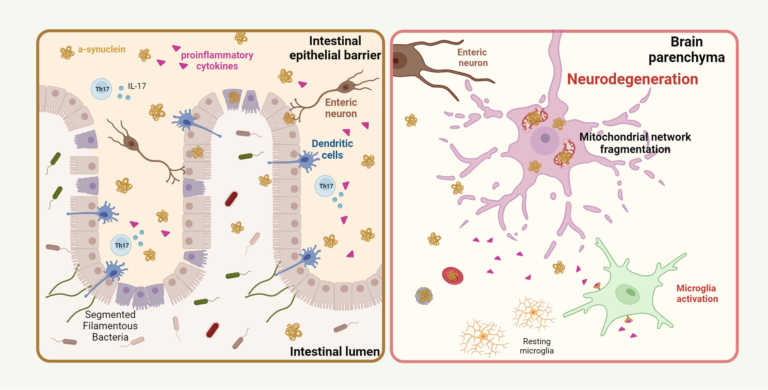New UVA Study Reveals Exercise and Appetite Suppression Link
Exercise and Appetite Control: Insights from a New UVA Study
In a world dominated by fitness fads and quick fixes, the relationship between exercise and our eating habits remains a topic of great interest. A recent study from the University of Virginia (UVA) has unveiled fascinating insights into how physical activity can lead to appetite suppression. So, what does this mean for our daily lives, health, and, ultimately, our waistlines? Let’s dive into the nitty-gritty of this latest research and explore how you can harness these findings to enhance your wellness journey.
The Study Breakdown: What Did UVA Discover?
Researchers from UVA set out to explore the complex interplay between exercise and appetite regulation. You might be asking, “How does a workout affect my desire to eat?” Well, this study revealed that engaging in regular physical activity may notably suppress the urge to munch, despite the usual narrative that exercise ramps up hunger.
Exercise and Its Effects on Appetite
What exactly did the UVA researchers find? Here are some of the key takeaways:
-
Physical Activity Decreases Ghrelin Levels: Ghrelin is often dubbed the “hunger hormone.” When we engage in exercise, particularly vigorous forms, our bodies seem to produce less of this hormone. This might explain why you don’t feel the urge to snack right after an intense workout.
-
Increased Satiety Signals: Apart from reducing hunger hormones, exercise also enhances feelings of fullness—thanks to various hormonal changes and the physiological effects of working out.
-
Behavioral Adjustments: Participants in the study exhibited longer periods of satiety, suggesting that their overall eating habits adapted positively after regular workouts.
So, in essence, if you’re putting in those sweat sessions, your body may naturally become less inclined to seek out snacks, helping you maintain a healthier diet.
Why This Matters: Implications for Your Health
With this knowledge, let’s take a moment to reflect: if exercise indeed influences our appetite, how can we use this to our advantage? Well, the possibilities are intriguing!
1. Weight Management
Many people struggle with weight loss or maintenance. Understanding that regular exercise can help control appetite might encourage individuals to adopt more sustainable fitness routines without fearing overwhelming hunger. Knowing that those morning jogs are as much about managing cravings as they are about burning calories can provide an extra dose of motivation.
2. Mindful Eating
The findings suggest that exercising regularly may contribute to more intuitive eating habits. When you exercise and find that your cravings aren’t as intense post-workout, it offers an opportunity for mindful eating—paying attention to what and when you’re eating rather than mindlessly snacking.
Making Exercise Fun: Ways to Get Moving
Now, I get it—exercise isn’t everyone’s cup of tea. But hang in there, because integrating movement into your life doesn’t have to feel like a chore! Here are some fun ways to get your heart pumping:
-
Find a Workout Buddy: Having someone to push you (and share the post-workout smoothie) can make all the difference!
-
Try Dance Classes: Who says you can’t enjoy yourself while exercising? Dance classes are a great way to get fit and have fun at the same time.
-
Outdoor Adventures: Hiking, biking, or even leisurely walks in your neighborhood can be exhilarating, bringing the added benefit of fresh air and nature.
- Sports: Engaging in sports like soccer, basketball, or even bowling taps into that competitive spirit while keeping you active.
The Key to Consistency
Whatever you choose, the most important aspect is consistency. Try to carve out time in your schedule for regular movement. Remember, it’s not about hitting the gym daily; it’s about embracing an active lifestyle that fits into your life.
The Role of Nutrition: Finding Balance
So we’ve covered exercise, but don’t forget the vital role that nutrition plays alongside it. After all, while exercise can suppress appetite, the quality of the calories we consume is equally important. Let’s look at a few tips for balanced eating:
-
Whole Foods Over Processed Choices: Trust me, choosing whole foods like fruits, vegetables, lean proteins, and whole grains won’t just keep you satisfied longer but also promote better nutrition.
-
Stay Hydrated: Sometimes we confuse thirst with hunger. Remember to drink plenty of water throughout the day!
-
Plan Your Meals: Planning allows you to make intentional choices. Cook up a batch of healthy meals over the weekend to make your weekdays a breeze.
The Science Behind It: How Does This Work?
Let’s delve deeper into the science so that you can understand just how fascinating the human body is:
-
Endorphin Release: When you exercise, your body releases endorphins, often referred to as “feel-good” hormones. These not only make you feel good mentally but may also play a role in moderating your appetite.
-
Metabolic Changes: Engaging in regular physical activity boosts your metabolism and, consequently, how your body uses energy. This shift can lead to alterations in how appetites are regulated.
-
Neurotransmitters: Exercise stimulates various neurotransmitters, which influence mood and appetite. The release of these chemicals may help regulate feelings of hunger.
Putting It All Together: The Path Forward
So, what’s the takeaway? The UVA study sheds new light on a long-standing question regarding exercise and its effects on appetite. Instead of fearing hunger post-exercise, embrace it as a natural part of how working out benefits your body’s regulation.
The journey toward a healthier you isn’t just about pushing through grueling workouts or adhering strictly to a diet. It’s about finding what works for you, creating a lifestyle that promotes both physical activity and healthy eating habits, and ultimately listening to your body.
Conclusion
The UVA study provides exciting revelations about the connection between exercise and appetite suppression. By understanding how our bodies react to physical activity, we can leverage this knowledge to foster better health and well-being. Whether you’re looking to manage your weight, make better food choices, or simply feel great, incorporating exercise into your routine can be a game-changer.
So, lace up those sneakers, shake off the excuses, and get moving. Exercise can be your ally in the journey toward a healthier, happier you!
FAQs
1. How often should I exercise to experience appetite suppression?
The UVA study suggests that regular physical activity—ideally, most days of the week—can aid in appetite suppression. Aim for at least 150 minutes of moderate activity per week.
2. Does this effect occur with all types of exercise?
While vigorous exercises (like running or HIIT) are shown to have stronger effects, even moderate activities like walking or cycling can contribute positively.
3. How long after exercising can I expect to feel less hungry?
The effect can vary among individuals, but many people report less hunger immediately after exercise and even a few hours later.
4. Should I change my eating habits alongside increasing exercise?
Yes! Pairing exercise with a balanced diet will maximize benefits. Focus on whole foods and stay hydrated.
5. Can I still gain weight if I exercise regularly?
Absolutely. If you consume more calories than you burn, you can still gain weight, but exercise can help manage cravings and support a healthy lifestyle.







